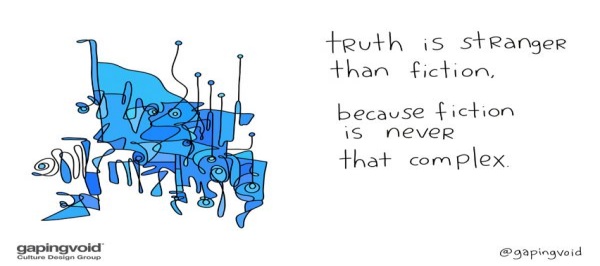Angrynomics, and my two cents to fix it
Don’t know angrynomics yet? You really should.
Angrynomics is a book that discusses “Why are measures of stress and anxiety on the rise when economists and politicians tell us we have never had it so good?".

<u><em><strong>CAPTION:</strong>
<a href="https://www.gapingvoid.com/blog/2020/02/27/why-we-wrote-angrynomics-by-mark-blyth/" target="_blank">Why We Wrote Angrynomics</a>
</em></u>
Medium has a nice interview to one author of the book, in which he elaborates on “why the economy has made us pissed off at everything”. That interview really resonated with me, because Angrynomics is strictly related to what I do on this website, and why. Here is why:
Worthwhile quotes from an Angrynomics interview
- One of the authors, commenting his first trained as a labor economist, that is all about flexibility and making markets more efficient: “You know, the whole time I was doing that degree, no one once ever said, Is this any good for the people involved?”
- Economists have modeled humans as “representative agents”… “ageless, sexless, tasteless, non-ideological, and… living forever.”
- Too often, bad people in power are people who really “like very ordered worlds, closed systems with known parameters that you can go in and fix. If you take that type of approach to big, complex, open, and entropic dynamic systems like human economies, then bad shit happens”.
- Both religion and economics produce dogmas that engineer one’s view of the world in ways that reduce uncertainty, that is fear, to a problem of risk.
- [But, in] the past 30 years, we’ve been taking that risk from corporations and governments and handing it to people and saying, “You fucking deal with it.”
- It’s a mistake to blame technology. You can put guardrails around things; you can put regulations in place. You can do very simple things that could be very pro-capitalist.
Yes. And my two cents
Much of the quotes above apply to, or depend on, what is frequently called “Big Tech”.
Good faith, well meaning fanatics of “very ordered worlds, closed systems with known parameters that you can go in and fix” surely include, besides many economists, a lot of the immature programming wizards that ignore or snob context collapse and work hard to eliminate interaction among real humans.
Digital technologies, as used today, enable or greatly amplify all the negative trends and forces described in that Angrynomics interview. Reading it made me realize that what I try to do with this website may also be described as fighting, with simple comments and explanations, the digital concauses and effects of Angrynomics. As just a few examples, see:
- Why we must just slow down both social media and Amazon
- The “progress” behind digital loneliness
- (added in Dec. 2020) The immensely stupid fragility of our “high-tech” way of living
Who writes this, why, and how to help
I am Marco Fioretti, tech writer and aspiring polymath doing human-digital research and popularization.
I do it because YOUR civil rights and the quality of YOUR life depend every year more on how software is used AROUND you.
To this end, I have already shared more than a million words on this blog, without any paywall or user tracking, and am sharing the next million through a newsletter, also without any paywall.
The more direct support I get, the more I can continue to inform for free parents, teachers, decision makers, and everybody else who should know more stuff like this. You can support me with paid subscriptions to my newsletter, donations via PayPal (mfioretti@nexaima.net) or LiberaPay, or in any of the other ways listed here.THANKS for your support!